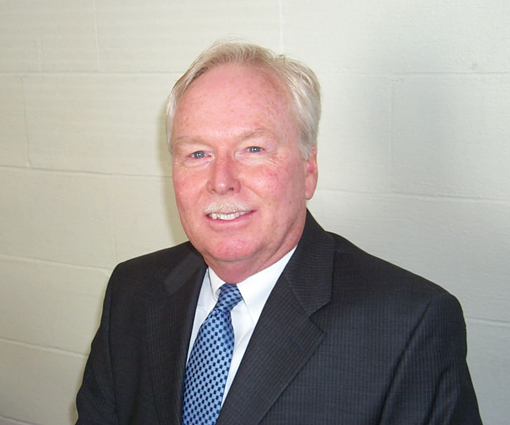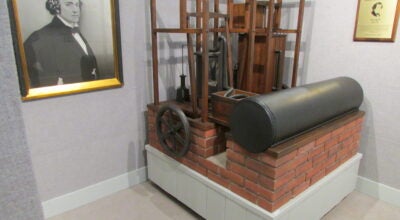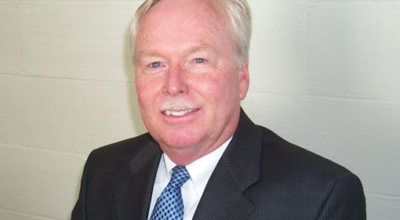I won’t be voting for TSPLOST, and here’s why
Published 8:43 am Friday, June 29, 2012
In addition to the very important countywide elections upcoming on July 31, voters will also decide whether or not to impose, on a regional basis, an additional one-cent sales tax to fund transportation projects in Decatur County.
The Transportation Investment Act of 2010 created the T-SPLOST referendum, to be voted on in 12 transportation regions throughout the state. Decatur County falls into the 14-county Southwest Georgia region. Each region will vote on July 31 to impose a one-cent sales tax to fund identified transportation projects throughout the region.
Regional Transportation Roundtables were created for each region, with members consisting of elected officials from each county and city, to determine an approved project list. City of Bainbridge Mayor Edward Reynolds, who also served on the executive committee, and Decatur County Commissioner Butch Mosely represented Decatur County during this process. There are seven approved, or “constrained,” projects for Decatur County.
If approved, the tax would be collected over a 10-year period, with 75 percent of the revenue spent on the approved projects and 25 percent returned to the region for local “unconstrained” projects, including road maintenance. The tax will be approved or denied on a regional basis, regardless of how an individual county votes.
Those approved projects include resurfacing Butler Ferry Road, resurfacing a portion of College Road and adding a turn lane, widening and reconstruction of Whigham Dairy Road, widening and resurfacing Faceville/Attapulgus Road, extending the rail line in Commodore One Industrial Park, constructing a three-lane road in Commodore Industrial Park, and constructing a ride-share parking lot at Cheney Griffin Park. A complete description of each of these projects is available by visiting www.thepostsearchlight.com.
A one-cent sales tax generates about $5 million in Decatur County each year, or roughly $50 million over the 10-year life of the tax. The total value of the seven local projects “on the list” is $24.76 million and the anticipated amount returned to county to be controlled locally is $11.5 million. In total, and in theory, only 72 percent of the tax money generated in Decatur County will be for transportation projects in Decatur County. This is unlike our municipal SPLOST and education SPLOST programs, which spend 100 percent of generated tax dollars locally.
That fact is the first reason why I have chosen to vote “No” on this referendum.
I mentioned that 72 percent of the money collected in the county would “theoretically” be spent in the county. Well, as has been proven many times, just because a project makes a SPLOST list does not guarantee that project will be funded and completed.
I am concerned that passage of this referendum will set precedent and lead to the state legislature dictating that all SPLOST votes and programs be on a regional basis. For the most part, our local governments have managed SPLOST funds judiciously and to the benefit of citizens. You can see, and appreciate, the results of SPLOST dollars throughout the county.
If the $5 million generated by a one-cent sales tax becomes $4 million, or less, because the programs are administered and distributed regionally, it would negatively impact Decatur County in a severe way.
During a meeting with the Bainbridge-Decatur County Chamber of Commerce board of directors, a representative from Connect Georgia, the group formed under the wing of the Georgia Chamber of Commerce to get this referendum passed, indicated that many legislators in Atlanta feel that regionalization is the best approach for SPLOST programs. Well, it wouldn’t be best for Decatur County citizens.
I am also concerned that the state has decided to use strong-arm tactics to ensure this tax is passed. Currently, if a local government contracts with the state to complete a road construction or improvements, the state pays 80 percent of the cost and the local share is 20 percent. Should a region not approve this tax, the local expense share rises to 30 percent of the cost. If it passes, the local share falls to 10 percent of the cost.
Additionally, the same representative of Connect Georgia, which is spending $5 million dollars statewide in an effort to get the tax approved, indicated that the state economic development office has taken the stance that no new business prospects would be brought to regions that did not pass the new tax. Proponents call it incentive, I see it more as punishment, bordering on extortion.
To be fair, State Rep. Jay Powell, who will represent a portion of Decatur County next year if he is re-elected, told me that the Connect Georgia representative surely misspoke. He said he did not think the state economic development office would do such a thing. But, I don’t believe a comment like that would just come out of thin air.
Each of you will have to make your own decision, for your own reasons, on how to vote on the referendum. There are too many unanswered questions with too much “collateral damage” for me to vote for it.
Jeff Findley is the publisher of The Post-Searchlight. You can email him at jeff.findley@thepostsearchlight.com.





